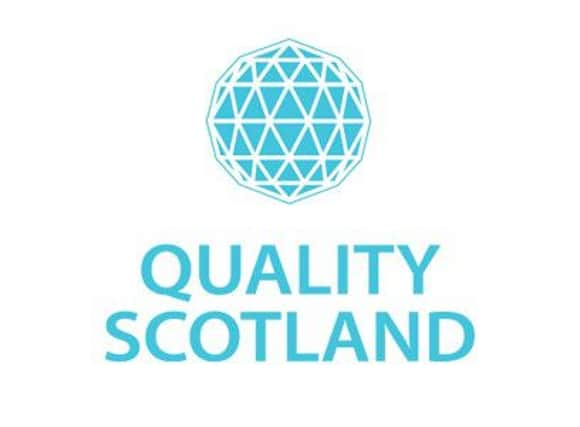Setting the right standards is what matters


There has been much public scrutiny of late relating to how charities are governed and conduct themselves and calls to reform legislation relating to the governance of the third sector have been made.
David Robb of OSCR, the Scottish Charity Regulator, in a recent TFN article, maintains that “submitting returns for OSCR should just be confirmation that you are accounting to your own stakeholders and managing your charity correctly. There shouldn’t be extra effort required to comply with OSCR’s regulatory regime”.
Advertisement
Hide AdAdvertisement
Hide AdHe talks about the need for transparency and that charities could do themselves a favour by providing a narrative and describing the impact they have made rather than just numbers when providing accounting reports. This mix of narrative and numbers is at the heart of the EFQM excellence model’s focus on “perceptions” and “performance indicators”. I would agree wholeheartedly with David and would go further to say that the EFQM excellence model is an ideal framework for third sector organisations to adopt to ensure the impact they are making at all levels within their organisation is strategically sound and based on the needs of their service users and stakeholders. If the excellence model is used holistically to ensure the whole organisation is well governed, you can easily prepare submissions for the purposes of OSCR and other regulatory bodies that demonstrate strong governance and real value adding impact.
Regular assessment against the excellence model will ensure relevant information is assessed to enable effective improvements to be made, again something funders and regulators should welcome.
Third sector organisations such as, Sense Scotland, The Wise Group and Cornerstone can and do use the EFQM excellence model as part of their governance framework and will have qualitative evidence for regulators such as OSCR and the Care Inspectorate which saves time and resources and can prevent duplication of effort when gathering evidence they know will be required.
Sense Scotland has noted an increase in regulator scores of 3 per cent since embarking on its Excellence journey. Andy Kerr, its chief executive, acknowledges the benefits: “We have been working with the support of Quality Scotland to develop and improve the performance and quality of our services for five years. When Sense Scotland started using the EFQM excellence model we hoped the framework would provide a useful measure for exploring how we could develop as a provider of services for children, young people and adults with communication support needs. So when we received our Recognised for Excellence Award we were not only delighted to share this success with our staff and the people we support, we were able to evidence a real improvement in the quality of our services across Scotland.”
Trustees are ultimately responsible for the governance of their third sector organisation and in light of recent events must ensure their governance model is fit for purpose.
Kate Sayer, of Sayer Vincent, specialist auditors and advisers to the charity and not-for-profit sector, recently published ten things, in her opinion, that a charity board should be attending to which ranged from making sure the right leadership team is in place, to ensuring that trustees understand the business model of the charity and the risks this brings with it, to ensuring trustees invest in proper research and evaluation to give them evidence of outcomes – all areas encompassed by the EFQM excellence model framework.
Because the EFQM model is holistic, it looks at all areas of an organisation’s performance from leadership and strategy development through to sustainability and people results.
I would argue there’s no need to develop any new improvement framework for third sector organisations and that the EFQM excellence model fits the bill whether you are in the public, private or third sectors. Organisations of all sizes can through self-assessment, use the excellence model to provide a bespoke management framework, reflecting their own context and strategic objectives.
Advertisement
Hide AdAdvertisement
Hide AdThe board can use the organisation’s EFQM management framework to contribute to the success and sustainability of the organisation. The common language offered by the excellence model makes it easier for stakeholders, including the board, to collaborate across projects and even integrate work with other organisations.
Further information on the benefits of EFQM for the third sector can be found in our online magazine Excellence Now and for more information on how Quality Scotland can help you visit www.qualityscotland.co.uk. I would be delighted to speak to you on a one to one basis or group setting about how we can support your organisation.
• Ann Pike is head of business development, Quality Scotland
SEE ALSO